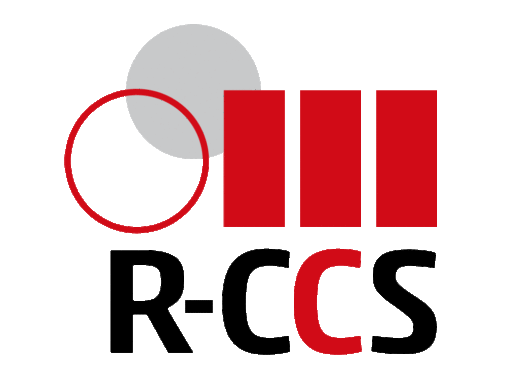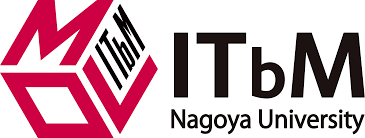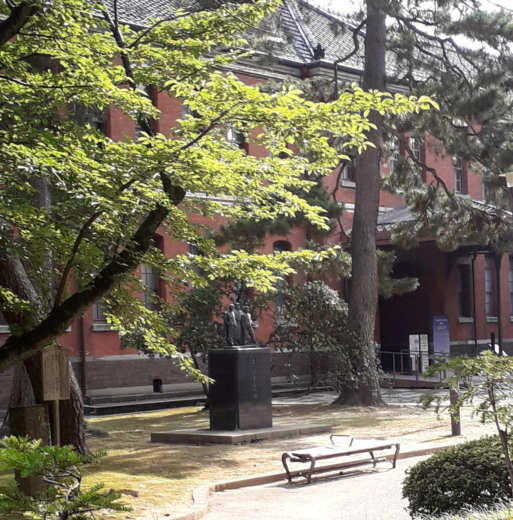Workshop “Trends in Computational Molecular Biophysics” will be held
 |
. |
 |
RIKEN Center for Computational Science, Kobe
Institute for Transformative Biomolecules (WPI-ITbM), Nagoya University
Nano Life Science Institute (WPI-NanoLSI), Kanazawa University
Workshop “Trends in Computational Molecular Biophysics”
November 3-4, 2018
Memorial Museum of Cultural Exchange, Kanazawa
Organizers: Florence Tama (RIKEN and WPI-ITbM), Alexander Mikhailov (WPI-NanoLSI), Osamu Miyashita (RIKEN)
The aim of this workshop is to review current progress and future trends in the development of computational methods for analysis and interpretation of experimental data for biomolecules, including protein machines. The challenges brought by novel single-molecule experimental techniques, such as High-Speed AFM, shall be extensively discussed.
Invited speakers:
H. Flechsig (Kanazawa university)
H. Kitahata (Chiba university)
H. Kodera (Kanazawa university)
N. Koga (Institute of Molecular Science, Nagoya)
T. Komatsuzaki (Hokkaido university)
T. Nagai (Nagoya university)
J. Noel (Max Delbrück Center for Molecular Medicine, Berlin)
K. Okazaki (Institute of Molecular Science, Nagoya)
T. Sumikama (Kanazawa university)
S. Takada (Kyoto university)
Y. Togashi (Hiroshima university)
T. Uchihashi (Nagoya university)
L. Yang (Kanazawa university)
J. Yu (Beijing Computational Science Research Center)
Application Program Venue Contact
Application
The number of participants in this workshop is limited to 25 due to the size of the reserved conference room. Therefore, the workshop is mostly by invitation. However, a few external applications may be accepted too. If you are interested, please contact Dr. Holger Flechsig (WPI-NanoLSI) until September 15 and provide the following information: Name, affiliation, position, research interests. We will inform you about the acceptance before September 30.
Program
Saturday, November 3rd
10:30 Opening
10:45 J. Yu (Beijing Computational Science Research Center)
Transcription studied in a nutshell on T7 RNA polymerase ratcheting along DNA with fidelity control and bursting activity
11:20 T. Uchihashi (Nagoya university)
Connection between AFM data and computational simulation
11:55 T. Komatsuzaki (Hokkaido university)
Revisit transition state theory: Past, Present, Future
12:30 – 14:30 Lunch
14:30 S. Takada (Kyoto university)
Towards integration of high-speed AFM data with biomolecular simulations
15:05 H. Kodera (Kanazawa university)
Interpretation of HS-AFM images using coarse-grained molecular dynamics simulation
15:40 L. Dai (Beijing Computational Science Research Center)
Deciphering intrinsic inter-subunit couplings that lead to sequential hydrolysis of F1-ATPase ring
16:00 – 16:30 Break
16:30 N. Koga (Institute of Molecular Science)
DBTL in protein design
17:05 K. Okazaki (Institute of Molecular Science)
Mechanism of Na+/H+ antiporter from transition-path simulations: Making faster transporter based on mechanism
17:40 Y. Kawasaki (Kyushu University)
Integrative approach combining electron microscopy and high-speed AFM revealed the dynamic conformational exchange of the oligosaccharyltransferase in lipid bilayers
18:00 C. Tan (Kyoto University)
Interaction between transcription factors and the nucleosome studied by molecular dynamics simulations.
Sunday, November 4th
9:00 J. Noel (Max Delbrück Center for Molecular Medicine, Berlin)
Mesoscopic polymer-like model for dynamics of dynamin filaments on deformable membrane tubes
9:35 Y. Togashi (Hiroshima university)
Toward mesoscale models of chromatin: considering the state and shape of molecules
10:10 G. Brandani (Kyoto University)
Molecular dynamics simulations of spontaneous and active nucleosome assembly
10:30 – 11:00 Break
11:00 H. Kitahata (Chiba university)
Hydrodynamic collective effects of active proteins in biological systems
11:35 T. Nagai (Nagoya university)
Toward hybrid modeling of XFEL single particle experiment by Gaussian mixture model
12:10 B. Dasgupta (Nagoya University)
Modelling low-resolution molecular volume of proteins from Atomic-Force Microscopy image by adaptive Gaussian kernels
12:30 – 14:00 Lunch
14:00 H. Flechsig (Kanazawa university)
A reduced model of myosin V motor dynamics to understand the mechanism of processive stepping observed in high-speed AFM experiments
14:35 T. Sumikama (Kanazawa university)
Towards elucidating the physical origin of force in AFM measurements and a method analyzing dynamics observed by HS-AFM
15:10 L. Yang (Kanazawa university)
A general approach combining molecular dynamics and machine learning to bridge the gap between AFM image and real structure
15:45 Y. Koyano (Chiba university)
Cooperative Dynamics of Active Dimers
16:05 Closing
Note: [*] should be replaced by @
The program can be downloaded here.
Venue
The workshop will take place in the historical building of the Fourth High School constructed in 1891. Today it accomodates The Fourth High School Memorial Museum of Cultural Exchange and The Ishikawa Modern Literature Museum. This building is located in the center of the city, next to the Kanazawa castle. The conference room is Room 4 on the second floor.
Please take a KANAZAWA LOOP BUS (Left Loop) at Kanazawa Station East Gate Bus Terminal #7 or Line 18 (Terminal #3), Line 13 or 90 or 92-95 (Terminal #6), Line 30-33 or 35 (Terminal #8), Line 41 or 42 or 44-46 (Terminal #9), Line 20-22 (Terminal #10) , or Line 51 or 54 or 56 (Terminal #11), and get off at Korinbo bus stop. It takes about 10 minutes and the fare is 200 yen.
HOKURIKU RAIL ROAD.CO.,LTD

The Fourth High School Memorial Museum of Cultural Exchange, Ishikawa (Ishikawa Modern Literature Museum)
〒920-0962 石川県金沢市広坂2丁目2−5
Contact
Dr. Holger Flechsig (WPI-NanoLSI)
flechsig [*] staff.kanazawa-u.ac.jp
Note: [*] should be replaced by @

